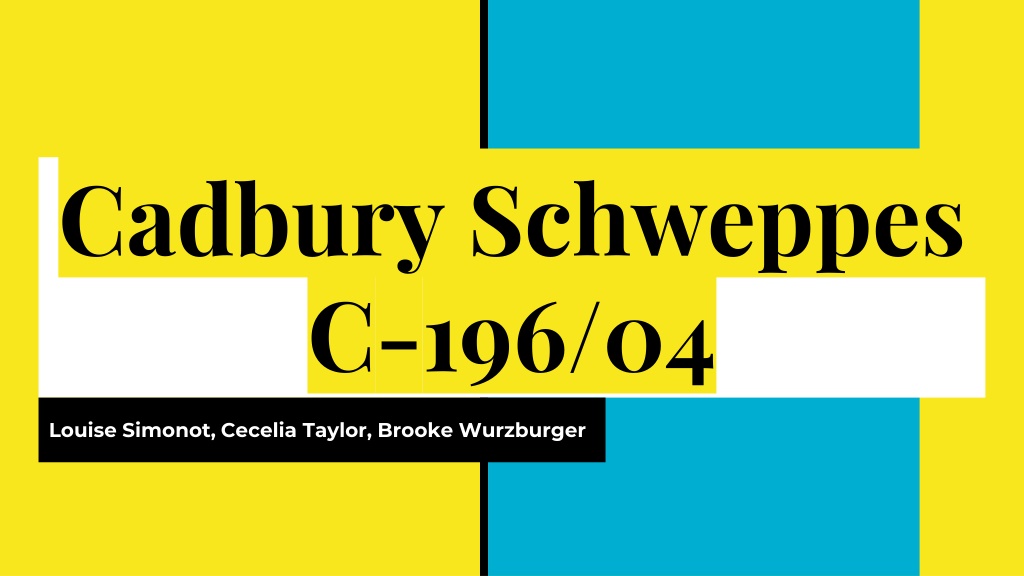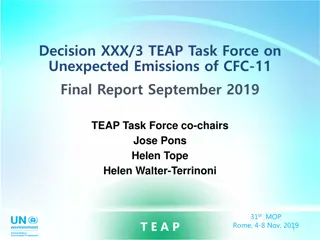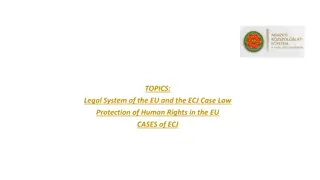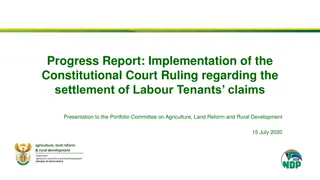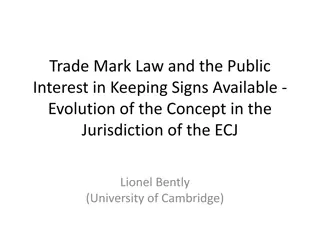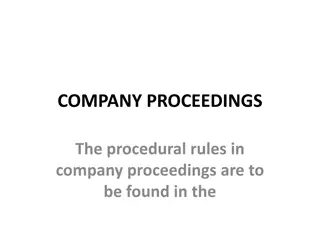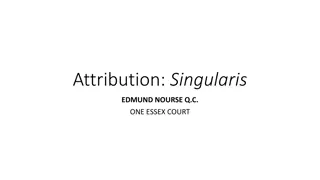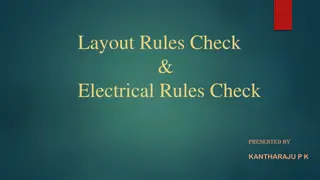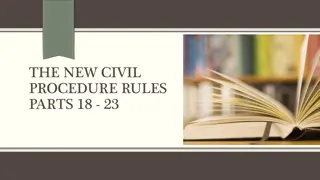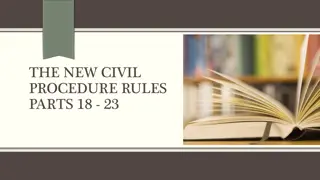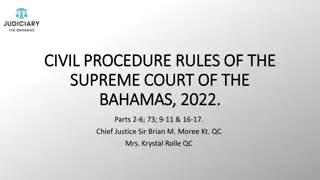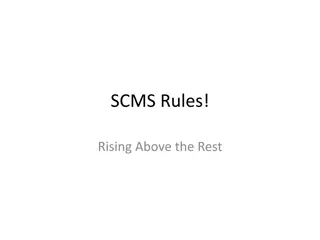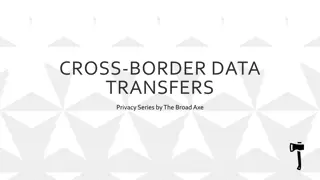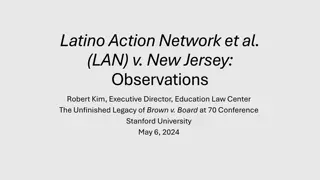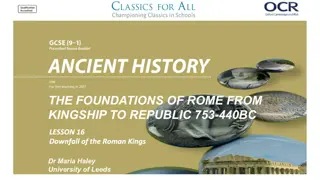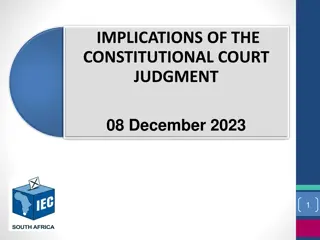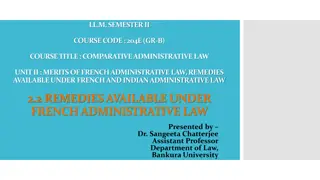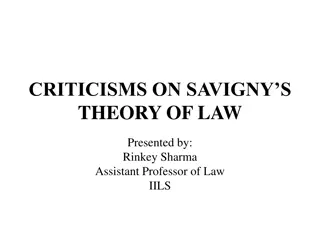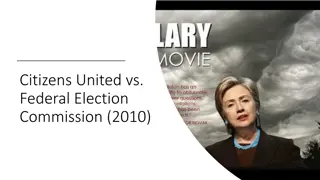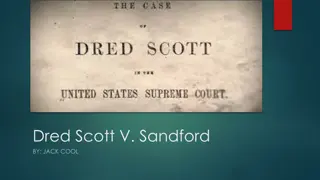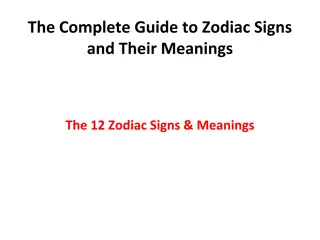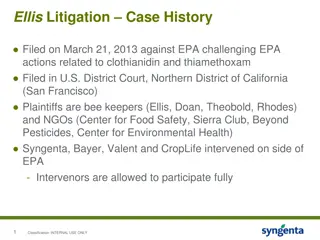ECJ Ruling on Cadbury-Schweppes CFC Rules
The European Court of Justice (ECJ) ruled in the Cadbury-Schweppes case that UK controlled foreign company (CFC) rules, aimed at preventing tax avoidance, cannot be applied to subsidiaries engaged in genuine economic activities. The case highlighted the conflict between freedom of movement of capital and freedom of establishment within the EU, emphasizing the need for justification when restricting such freedoms based on tax considerations.
Download Presentation

Please find below an Image/Link to download the presentation.
The content on the website is provided AS IS for your information and personal use only. It may not be sold, licensed, or shared on other websites without obtaining consent from the author. Download presentation by click this link. If you encounter any issues during the download, it is possible that the publisher has removed the file from their server.
E N D
Presentation Transcript
Cadbury Schweppes C-196/04 Louise Simonot, Cecelia Taylor, Brooke Wurzburger
Diagram Cadbury Schweppes Treasury Service - United Kingdom 30% tax rate (1996) Ireland 12.5% Tax Cadbury Schweppes Treasury International Cadbury Schweppes - Parent company Commission of Inland Revenue European Court of Justice
Problem- Anti-tax avoidance measures for CFCs: contrary to the freedom of establishment ? UK anti-tax avoidance rules (1988) tax foreign subsidiaries of UK companies, in opposition to EU rules on freedom of establishment and movement of capital Cadbury-Schweppes had two subsidiary companies benefiting from 10% tax rate in Ireland UK Government forced the company to pay the difference between the Irish and the UK rate Cadbury was asked to pay 8.6m Cadbury Schweppes Overseas Ltd. vs Commission of Inland Revenue (British government) brought to European Court of Justice in 2005
Case Details UK controlled foreign company (CFC) rules - designed to prevent companies from avoiding British taxes by relocating capital to subsidiaries to countries with lower tax rates (tax havens) UK CFC rules more restrictive than those in the European Union CFC rules apply to wholly artificial arrangements (companies which establish in country only for tax benefits) but NOT to subsidiaries where genuine economic activity takes place motive test Wholly artificial arrangement must be intended to circumvent national law
Decision Argumentation: The ECJ determined that the CFC rules operates only when it is about wholly artificial arrangements. Even though the two subsidiaries were in Ireland only for benefiting the low tax rate, they were operating genuine economic activities in Ireland. Comparability: Freedom of movement of capital VS Freedom of establishment
Decision Justification: The CFC legislation had no reason to be applied here as CSTS and CSTI carried on genuine economic activities in Ireland. The ECJ ruled that UK tax rules on foreign subsidiaries of British companies restricted the freedom of establishment (art. 43, 48 EC & 52 EC) without any justification A Member State can t hinder the freedom of movement in another Member State and justify it by a low level of taxation in that state
Implications for the Future Opened doors for other large companies like Cadbury Schweppes to use lower taxing countries for their subsidiaries if they were wholly artificial arrangements Since the UK s tax rules were ruled as restrictive, the UK must look over laws and see if others may not be compliant with EU treaties Could face more lawsuits if not Freedom of Establishment can be used as a basis for trial in future cases by other Multinationals
Sources Cadbury Schweppes: What the analysts say. (15 March 2007). Retrieved from https://www.theguardian.com/business/2007/mar/15/cadburyschweppesbusinessl. Catley, S. (27 September 2006). Cadbury Schweppes: how sweet it is to be loved by the EU. Retrieved from https://uk.practicallaw.thomsonreuters.com. Wallop, H. (12 September 2006). Cadbury wins landmark tax case against Treasury. Retrieved from https://www.telegraph.co.uk/finance/2947160/Cadbury-wins-landmark-tax-case-against- Treasury.html. Press Release No. 37/06: Advocate General s Opinion in Case C-196/04. (2 May 2006). Retrieved from http://europa.eu/rapid/press-release_CJE-06-37_en.htm. Cadbury Schweppes and Cadbury Schweppes Overseas, Opinion of Monsieur L ger, Case C- 196/04 http://curia.europa.eu/juris/showPdf.jsf;jsessionid=DD6265F33007E7C60722BDA366A1BBFE?text= &docid=56602&pageIndex=0&doclang=en&mode=lst&dir=&occ=first&part=1&cid=10650074 Cadbury Schweppes and Cadbury Schweppes Overseas, Judgement of the Court (Grand Chamber), http://curia.europa.eu/juris/showPdf.jsf;jsessionid=DD6265F33007E7C60722BDA366A1BBFE?text= &docid=63874&pageIndex=0&doclang=EN&mode=lst&dir=&occ=first&part=1&cid=10650074
